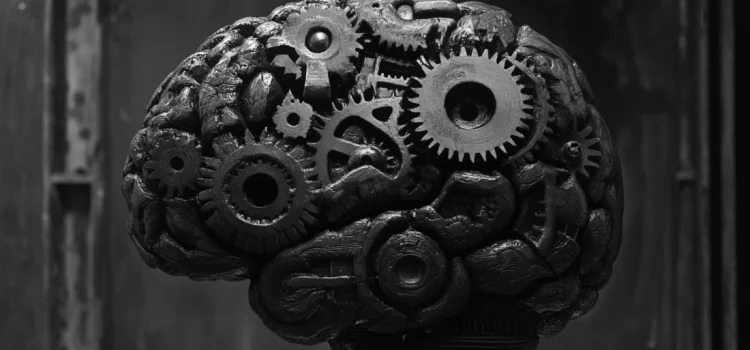
Are we consciously in charge of our thoughts and actions? What’s the modular theory of mind?
According to Robert Wright’s book Why Buddhism Is True, the principle of no-self dovetails neatly with the modular theory of mind. This is an idea in cognitive science that says our thoughts and behaviors arise from the activity of various mental “modules,” or interconnected groups of brain areas that work together.
Read below to learn about the modular theory of mind.
Your Mind Is Constructed of Modules
Each module Wright describes has its own agenda, such as courting mates or finding food, and they constantly compete for control of our actions. In the modular theory of mind, our thoughts arise spontaneously, driven by feeling—we don’t consciously choose them.
Think about the last time you tried to resist a temptation, like a basket of french fries. It can feel like there are two “yous” in conflict—one wants the fries, and the other wants to avoid unhealthy food. This internal tug-of-war makes more sense if you think of yourself not as a single cohesive “self,” but rather as a collection of competing impulses and desires.
(Shortform note: Wright’s explanation of modules isn’t the only theory that describes the mind as made up of distinct parts. Internal Family Systems (IFS), for instance, is a therapeutic approach that views the psyche as a multiplicity of “parts” that interact like family members. IFS views these inner parts as an adaptable system, and the point of IFS therapy is to “heal” wounded parts in order to harmonize your inner life. In contrast to the modular view, then, IFS might view the two “yous” playing tug-of-war over french fries as parts in conflict—and in need of positive attention—rather than competing evolutionary impulses.)
According to Wright, modular mind theorists also say that we’re mistaken in thinking that we’re consciously in charge of our thinking, feeling, and acting. In the modular view, your conscious self is less of a chief and more of a mediator. It “hears” the arguments from different parts of you, but it doesn’t make the decision in the end.
So why have consciousness at all, then? Wright says the leading hypothesis is that consciousness functions as a sort of spokesperson for your multiple inner modules. Evolutionarily, it would’ve been useful to present a coherent self to the world—if you seemed consistent and reliable, you’d have been more socially accepted. You therefore would’ve had better chances of surviving and reproducing. Consciousness helps you do this by rationalizing your decisions, regardless of what module wins, and making it feel like you’re one coherent self. Believing that, you can then present a consistent character to the world.
(Shortform note: Daniel Dennett’s “multiple drafts” theory in Consciousness Explained suggests a different explanation for why we have consciousness. Dennett argues consciousness evolved as a mental workspace where multiple “drafts” of potential thoughts and actions compete and get revised—like an internal theater for testing scenarios before acting. This suggests consciousness might be less about maintaining social appearances, as Wright emphasizes, and more about creating a flexible platform for simulating choices to better navigate life. Both views agree consciousness isn’t really “in charge,” but they differ on whether its main job is social presentation or mental rehearsal.)
For Wright, these scientific theories validate the principle of no-self. Like Buddhism, they say that our selves are far less concrete, permanent, or under control than we think. And where Buddhism doesn’t provide rigorous, empirical evidence, science does.






